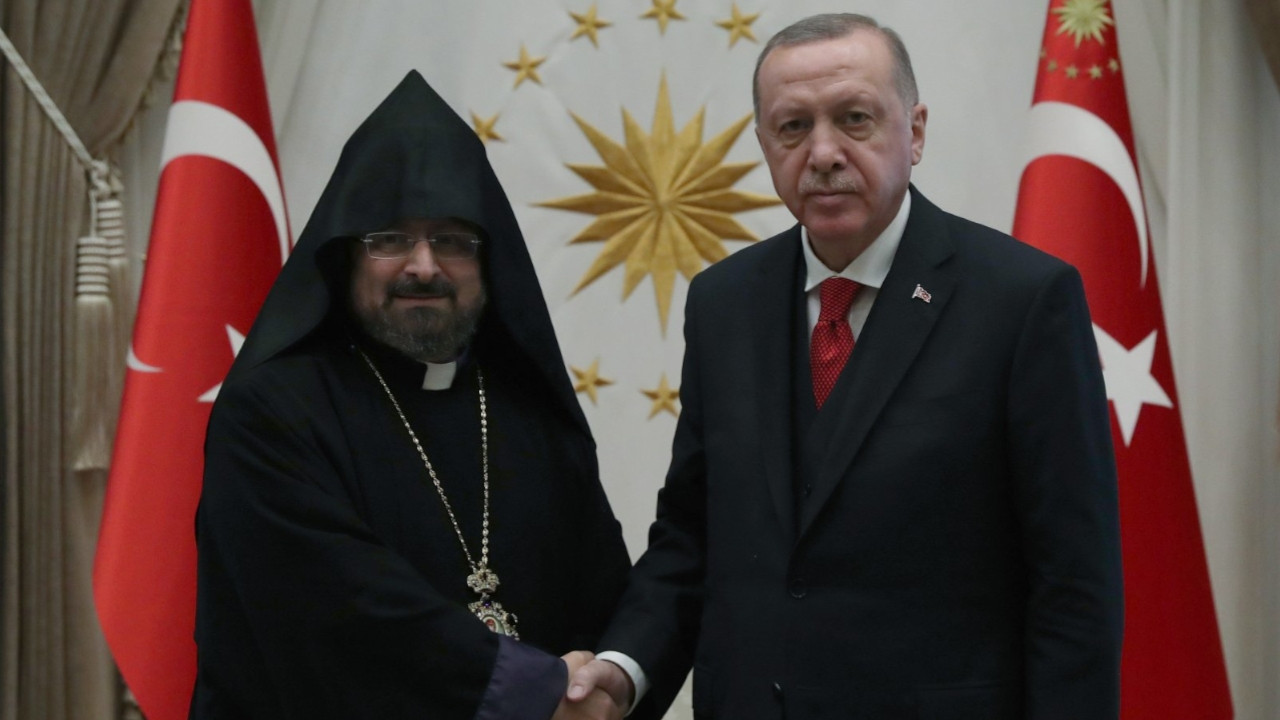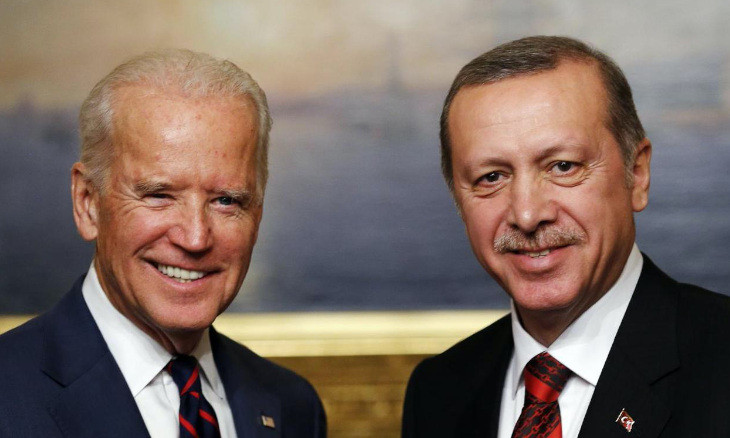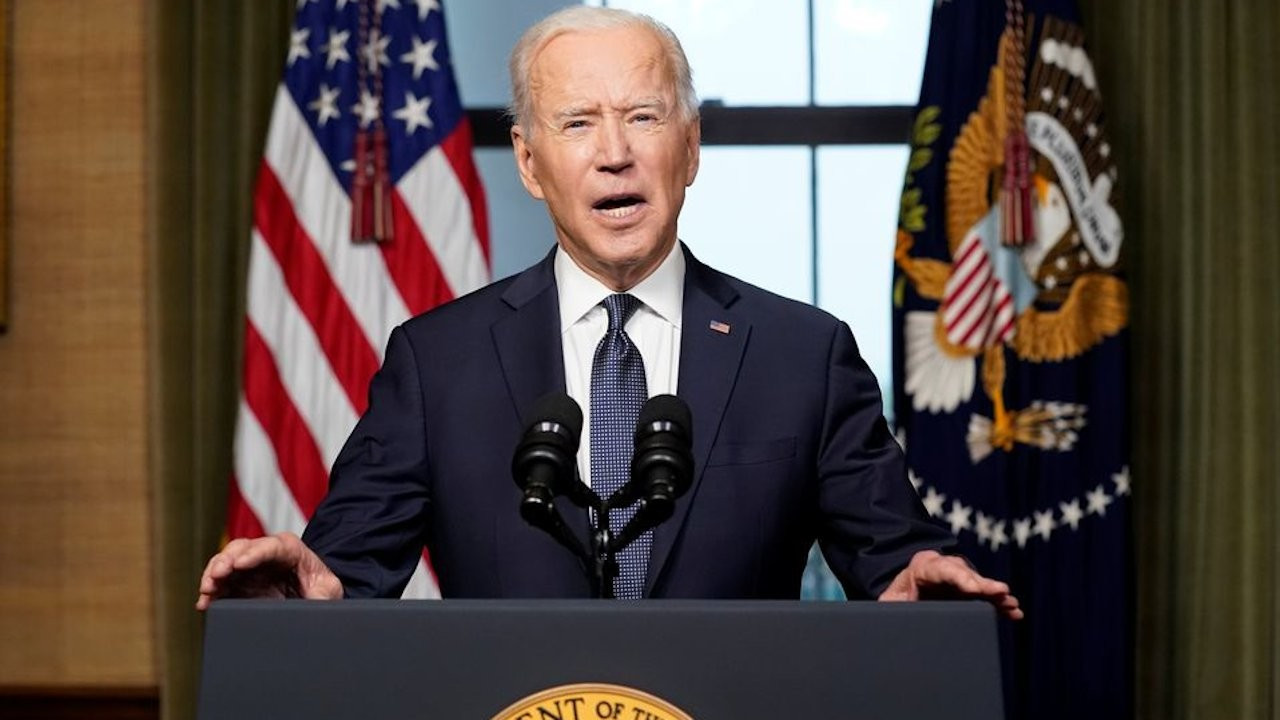Biden recognizes 1915 Armenian massacres as genocide
U.S. President Joe Biden has recognized the 1915 massacres of Armenians in the Ottoman Empire as genocide, a historic declaration that has infuriated Turkey. The Turkish Foreign Ministry said Biden's declaration had no legal basis and would "open a deep" wound in bilateral ties, rejecting it "in the strongest terms."
Duvar English - Reuters
U.S. President Joe Biden has recognized the mass killings of Armenians under the Ottoman Empire as genocide, becoming the first American president to make such an announcement.
"Each year on this day, we remember the lives of all those who died in the Ottoman-era Armenian genocide and recommit ourselves to preventing such an atrocity from ever again occurring," Biden said in a statement on Armenian Remembrance Day on April 24.
"The American people honor all those Armenians who perished in the genocide that began 106 years ago today," he said.
The largely symbolic statement, breaking away from decades of carefully calibrated language from the White House, comes at a time when Ankara and Washington have deep policy disagreements over a host of issues.
Turkey says Biden's declaration has no legal basis
The Turkish Foreign Ministry said Biden's declaration had no legal basis and would "open a deep" wound in bilateral ties, rejecting it "in the strongest terms."
"This statement of the US, which distorts the historical facts, will never be accepted in the conscience of the Turkish people, and will open a deep wound that undermines our mutual trust and friendship," the ministry said, calling on Biden to "correct this grave mistake."
Several Turkish government officials lined up to slam Biden's declaration.
Turkish Foreign Mevlüt Çavuşoğlu said that Turkey "entirely rejects this statement based on populism."
"We have nothing to learn from anybody on our own past. Political opportunism is the greatest betrayal to peace and justice," he wrote on Twitter.
“Words cannot change or rewrite history.”
— Mevlüt Çavuşoğlu (@MevlutCavusoglu) April 24, 2021
We have nothing to learn from anybody on our own past. Political opportunism is the greatest betrayal to peace and justice.
We entirely reject this statement based solely on populism.#1915Events
Turkish Presidential Spokesman İbrahim Kalın said Biden's remarks "repeat the accusations of those whose sole agenda is enmity towards our country."
"We advise the U.S. President to look at (his country's) own past and present," he wrote on Twitter.
Shortly before the release of Biden's statement, the Turkish Presidency issued a letter that President Recep Tayyip Erdoğan sent to Armenian Patriarch Sahak Maşalyan.
"The politicization of the discussions that should be held by historians and used as a tool of intervention against our country by third parties has benefited no one. I believe that it is a great injustice against the new generations to build our identity on the pains marked on our souls by the past," Erdoğan said in his letter.
Turkey accepts that many Armenians living in the Ottoman Empire were killed in clashes with Ottoman forces during World War One, but contests the figures and denies the killings were systematically orchestrated and constitute a genocide.
Ties between Ankara and Washington have been strained over issues ranging from Turkey's purchase of Russian S-400 defense systems - over which it was the target of U.S. sanctions - to policy differences in Syria, human rights and legal matters.
Biden's declaration follows a non-binding resolution by the U.S. Senate adopted unanimously in 2019 recognizing the killings as genocide.
Previous U.S. presidents have abandoned campaign promises to recognize the Armenian genocide for fear of damaging U.S.-Turkish relations, said Nicholas Danforth, non-resident fellow for The Hellenic Foundation for European and Foreign Policy.
"With relations already in shambles, there was nothing to stop Biden from following through," said Danforth. "Ankara has no allies left in the US government to lobby against this and Washington isn't worried whether it angers Turkey anymore."
Erdoğan had established a close bond with former U.S. President Donald Trump, but since Biden took over, Washington has grown more vocal about Turkey's human rights track record. It has also stood firm on its demand that Ankara get rid of the Russian defense systems.
Biden had also delayed having a telephone conversation with Erdoğan until April 12 -- seen largely as a cold shoulder to the Turkish president -- when he informed him of his decision to recognize the massacres as genocide.
Meanwhile, Armenian Prime Minister Nikol Pashinyan told Biden in a letter on April 24 that recognition of the genocide is a matter of security to Armenia, especially after events that took place in the region last year when a war in Nagorno-Karabakh broke out.
"Armenians all over the world met with great enthusiasm and welcomed recognition of genocide," Pashinyan said in the letter to Biden published on his website.

 Erdoğan sends letter to Armenian Patriarch, offers condolences over 1915 massacrePolitics
Erdoğan sends letter to Armenian Patriarch, offers condolences over 1915 massacrePolitics Erdoğan, Biden hold first phone call amid tense Turkey-US relationsDiplomacy
Erdoğan, Biden hold first phone call amid tense Turkey-US relationsDiplomacy Biden expected to recognize massacre of Armenians as genocideDiplomacy
Biden expected to recognize massacre of Armenians as genocideDiplomacy